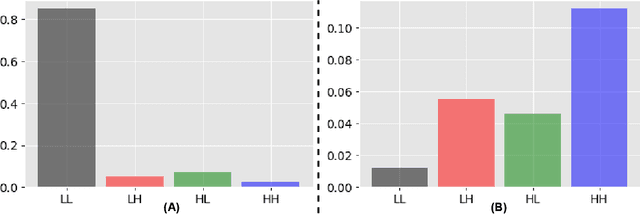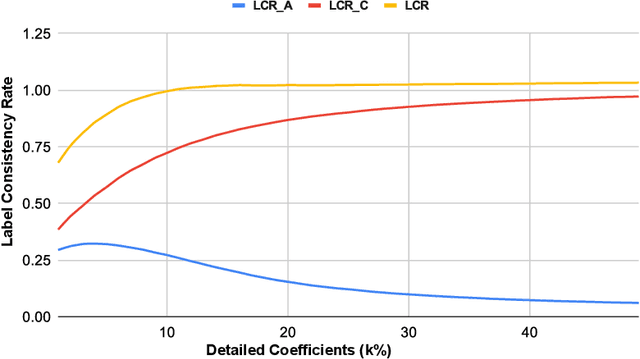Shubham Randive
DAD++: Improved Data-free Test Time Adversarial Defense
Sep 10, 2023Abstract:With the increasing deployment of deep neural networks in safety-critical applications such as self-driving cars, medical imaging, anomaly detection, etc., adversarial robustness has become a crucial concern in the reliability of these networks in real-world scenarios. A plethora of works based on adversarial training and regularization-based techniques have been proposed to make these deep networks robust against adversarial attacks. However, these methods require either retraining models or training them from scratch, making them infeasible to defend pre-trained models when access to training data is restricted. To address this problem, we propose a test time Data-free Adversarial Defense (DAD) containing detection and correction frameworks. Moreover, to further improve the efficacy of the correction framework in cases when the detector is under-confident, we propose a soft-detection scheme (dubbed as "DAD++"). We conduct a wide range of experiments and ablations on several datasets and network architectures to show the efficacy of our proposed approach. Furthermore, we demonstrate the applicability of our approach in imparting adversarial defense at test time under data-free (or data-efficient) applications/setups, such as Data-free Knowledge Distillation and Source-free Unsupervised Domain Adaptation, as well as Semi-supervised classification frameworks. We observe that in all the experiments and applications, our DAD++ gives an impressive performance against various adversarial attacks with a minimal drop in clean accuracy. The source code is available at: https://github.com/vcl-iisc/Improved-Data-free-Test-Time-Adversarial-Defense
Data-free Defense of Black Box Models Against Adversarial Attacks
Nov 03, 2022



Abstract:Several companies often safeguard their trained deep models (i.e. details of architecture, learnt weights, training details etc.) from third-party users by exposing them only as black boxes through APIs. Moreover, they may not even provide access to the training data due to proprietary reasons or sensitivity concerns. We make the first attempt to provide adversarial robustness to the black box models in a data-free set up. We construct synthetic data via generative model and train surrogate network using model stealing techniques. To minimize adversarial contamination on perturbed samples, we propose `wavelet noise remover' (WNR) that performs discrete wavelet decomposition on input images and carefully select only a few important coefficients determined by our `wavelet coefficient selection module' (WCSM). To recover the high-frequency content of the image after noise removal via WNR, we further train a `regenerator' network with an objective to retrieve the coefficients such that the reconstructed image yields similar to original predictions on the surrogate model. At test time, WNR combined with trained regenerator network is prepended to the black box network, resulting in a high boost in adversarial accuracy. Our method improves the adversarial accuracy on CIFAR-10 by 38.98% and 32.01% on state-of-the-art Auto Attack compared to baseline, even when the attacker uses surrogate architecture (Alexnet-half and Alexnet) similar to the black box architecture (Alexnet) with same model stealing strategy as defender. The code is available at https://github.com/vcl-iisc/data-free-black-box-defense
 Add to Chrome
Add to Chrome Add to Firefox
Add to Firefox Add to Edge
Add to Edge